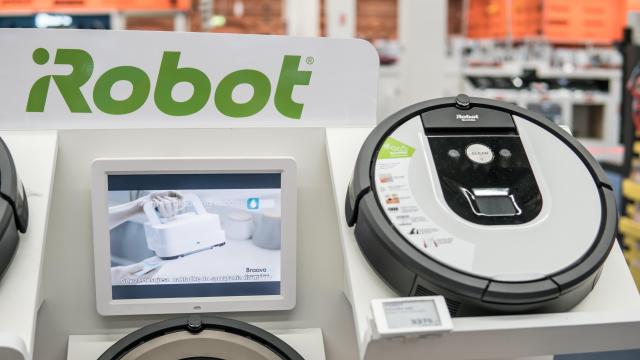Amazon and Roomba developer iRobot have finalised a merger agreement to make the e-commerce giant the proud new owner of the consumer robot manufacturer. The true motive behind the acquisition is unclear, but it is likely an attempt for Amazon to develop more autonomous warehouse robots and expand its smart home business.
Amazon announced on Friday that it has acquired iRobot in a merger valued at $US61 ($85) per share through an all cash transaction that totals nearly $US1.7 ($2.46) billion. David Limp, Senior vice president of Amazon Devices, said in a press release:
We know that saving time matters, and chores take precious time that can be better spent doing something that customers love. Over many years, the iRobot team has proven its ability to reinvent how people clean with products that are incredibly practical and inventive — from cleaning when and where customers want while avoiding common obstacles in the home, to automatically emptying the collection bin. Customers love iRobot products — and I’m excited to work with the iRobot team to invent in ways that make customers’ lives easier and more enjoyable.
The announcement is largely void of details, but the total acquisition of iRobot by Amazon coupled with Limp’s comments — specifically his mentions of automation and avoiding obstacles — likely points to Amazon’s interest in acquiring iRobot’s technology, not their products, in order to bolster Amazon’s warehouse robot fleet. When Gizmodo asked Amazon about their intent for the acquisition via email, they redirected us to Limp’s quote.
Earlier this summer, Amazon announced Proteus, a robot to serve in the company’s warehouses that is suspiciously Roomba-shaped and capable of avoiding obstacles. Amazon’s warehouse robot fleet has previously included the likes of “Ernie,” a robot that can retrieve items from shelves, and “Bert,” one of the company’s first attempts at using smart navigation tech.
Amazon’s pivot to autonomous (and emotionless) warehouse workers comes at an interesting time as the company sees a broader push for unionization and better warehouse working conditions. This past Prime Day, warehouse workers at Amazon circulated a petition to increase public attention on the oppressive conditions of Amazon’s warehouses.
It’s also worth noting that Roomba famously maps users homes as it tidies up and could be a valuable source of data for a company looking to dominate the smart home industry.
